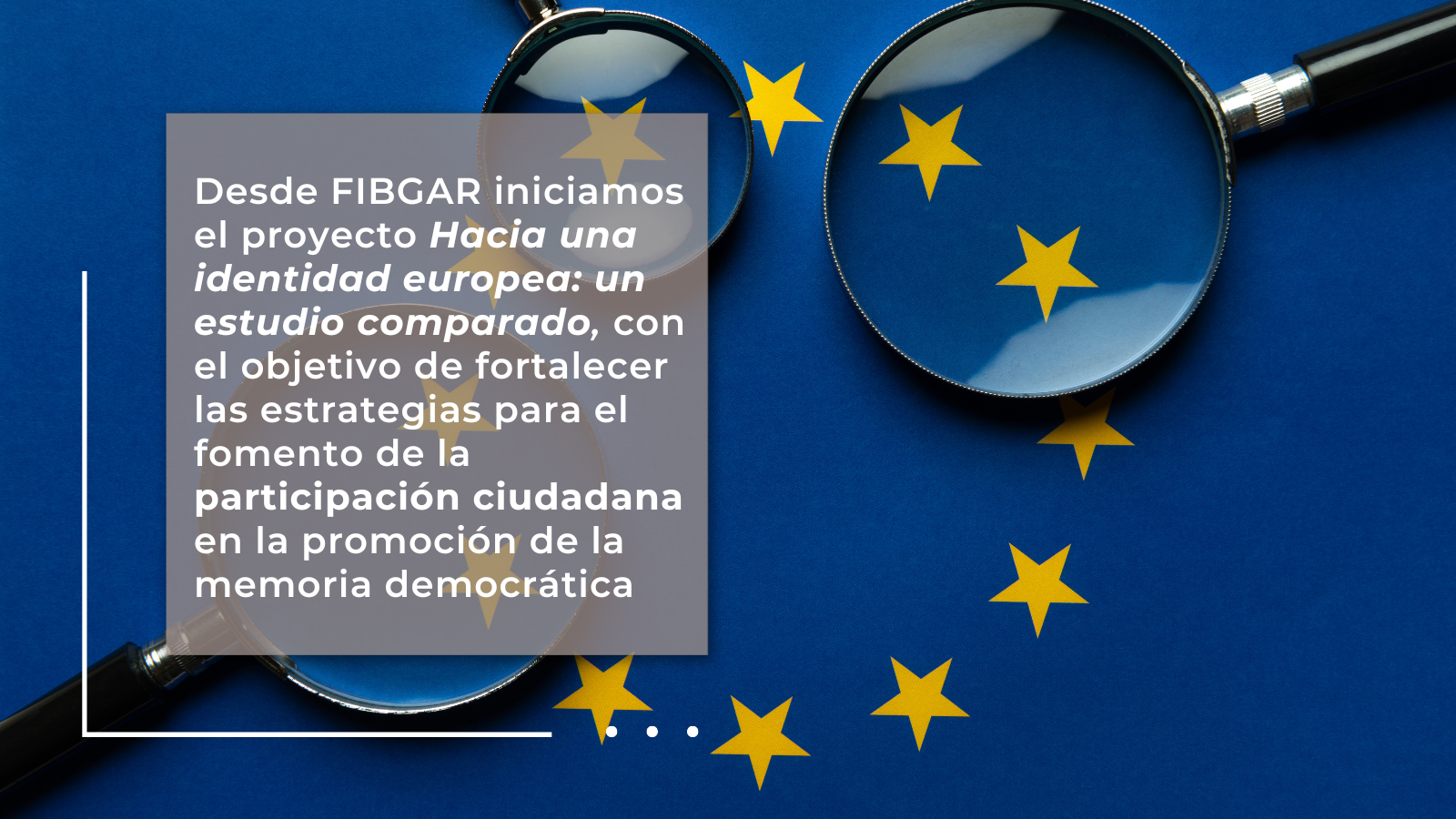
Towards a European identity
Towards a European identity: the role of civil society organizations in the promotion of democratic memory policies. A comparative study is a project co-funded by the Ministry of Territorial Policy and Democratic Memory.
This project aims to collect, systematize and analyze experiences in different European countries on citizen participation in the promotion of democratic memory policies, making visible the path taken and the milestones that helped to generate a European culture of active remembrance, as well as the current challenges and achievements.
In recent decades, European civil society has been fundamental in the recovery and transmission of what happened during the twentieth century, which resulted in two World Wars and their subsequent recovery. In countries such as Spain, Greece, Portugal, Poland, Germany and France, citizens have been the driving force that has led States to develop and adopt public policies dedicated to promoting democratic memory.
In particular, in the European context, the claims of democratic memory have also played an important role in the process of building a European identity. After the Second World War, the integration process was built from the top down on the ashes of a past of conflict and violence, based on the values of peace and democracy. Thus, it has been civil society that has driven the common project, progressively consolidating a sense of belonging and identity.
In this way, and always thanks to the work of civil society, since the early 1990s democratic memory has burst more strongly into the regional political space, becoming a fundamental element of European identity. Thus, European institutions have been recognizing the relevance of raising awareness and promoting European historical memory as a common culture and an antidote to the resurgence of totalitarian ideas (European Parliament Resolution of 19 September 2019 on the importance of European remembrance for the future of Europe (2019/2819(RSP)).
Although the importance of the contribution of civil society as a driver of democratic memory is recognized, its contribution to social change has not been adequately researched. In particular, there is a lack of a global and comprehensive European view, which manages to analyze national experiences as part of a common effort towards the construction of a European civic space and analyze its impact on European society today.
Therefore, from FIBGAR we will work on the development and analysis of a research that arises from the current situation of Spanish democracy. Contextualizing the Spanish democratic memory in the European framework in which totalitarianism and human rights violations took place, is the best way to understand the origins of the Spanish dictatorial period and, particularly, to give the victims and society as a whole the theoretical and conceptual tools to participate directly and actively in the creation of public policies of memory.
Towards a European identity aims to analyze the contribution of civil society in the promotion and definition of democratic memory in different European countries (Italy, Germany, France, Greece, Portugal, Poland) and its interrelation with the process of European construction, emphasizing the role played by civil society.
To learn more about the project click here.



